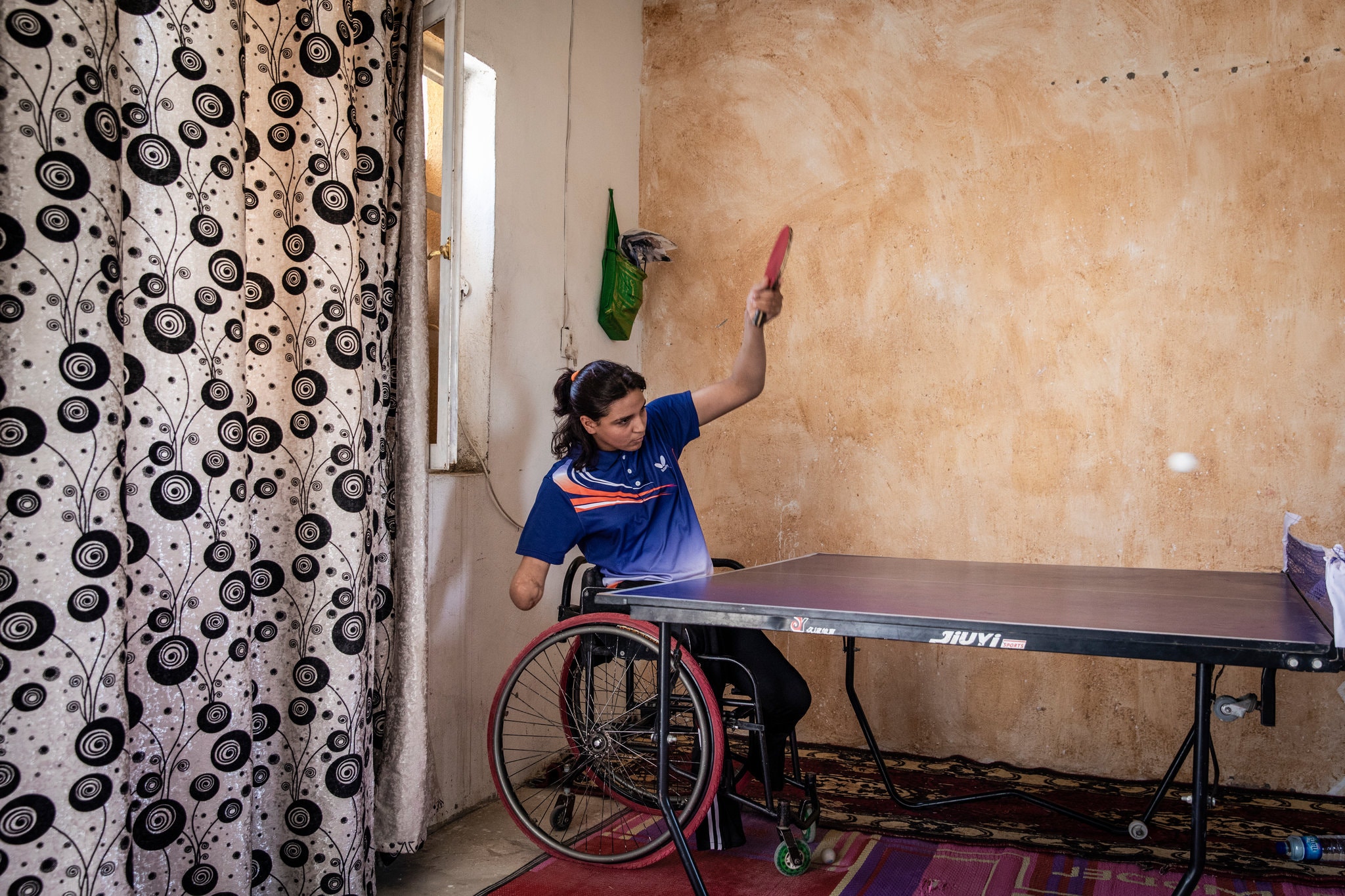On April 19, 2008, life for Najla Imad Lafta took a fateful, and nearly fatal, turn. Only three years old at the time, she ran to meet her father as he came home from work in Baquba, Iraq. Her father, Imad Lafta, worked in communications technology with the Iraqi army, which in turn worked with the occupying American forces. Likely because of these connections, Mr. Lafta was targeted for assassination. In a pattern consistent with Al Qaeda in Iraq, a magnetic bomb was attached underneath his car. "As I drove up to the house, Najla ran towards me, holding out her arms and smiling,” Mr. Lafta painfully recounted. "As she pulled open the door, the sticky bomb exploded.” Najla remembers “a huge blow; it was like a fire was in my body and I saw my arm fly into the air." She also lost both legs in the blast. With so much trauma and blood loss, Najla nearly died. As she began her grueling recovery, a new reality began to set in. “I was at the hospital three months," said Najla. "Once I realized I had lost my legs and arm I cried and cried and became angry because I knew I had lost everything.” Her despondency only worsened when she started school. “I saw my friends were running at school, walking and playing, and they were thinking about what they would do in the future,” said Najla. “All I could do was sit in my wheelchair and think that I wanted to run like them.” Prosthetic limbs were far outside the budget of Najla's family, which lives without running water. Right-handed as a child, she had to learn to navigate life with only her left hand. One day five years ago, she bought a ping-pong paddle on a whim. Initially, she would entertain herself after homework by bouncing the ball against a wall. Her father noticed this new interest and asked a friend for help. It helped that the friend was Hossam Hussein al-Bayat, a coach for Iraq's Paralympic team. “He said to me, ‘I want you to take that paddle and start training daily,’” remembers Najla. And train she did, supplementing two- to three-hour daily practice at home with weekly coaching from al-Bayat. At age 12, she made the Iraqi Paralympic team. Aqil Hameed, chairman of Iraq’s Paralympic Committee, marveled at Najla's resilience. “What amazed me in Najla is that she is from a very poor family and lives in a neighborhood where squatters live and she has only one arm and she is the champion of Iraq and took the golden medal in the Iraqi championship and took the silver medal in Asia,” gushed Hameed. With her success, Najla has also found a second home at the Paralympic team’s training center in Baghdad. During her weekly visits, she finds comfort and inspiration working with fellow para athletes, about a third of whom were also disabled in the war. The Paralympics committee also bought prosthetic limbs for Najla. Although they are not the highly specialized variety made for athletes, they will improve her mobility in daily life. “To be honest, nothing compares to having legs and arms,” said an appreciative but candid Najla. “But at least I am happy with what I have done.” As Paralympic Committee chairman Aqil Hameed reflected, “Really I consider this a miracle and the persistence and the effort and the hope that Najla has must be a big lesson for us and for all of the Iraqis.” While Najla's story is the result of specific geopolitical conflicts, her indomitable spirit in the face of unimaginable challenges can surely give hope to anyone, anywhere.
More at The New York Times
